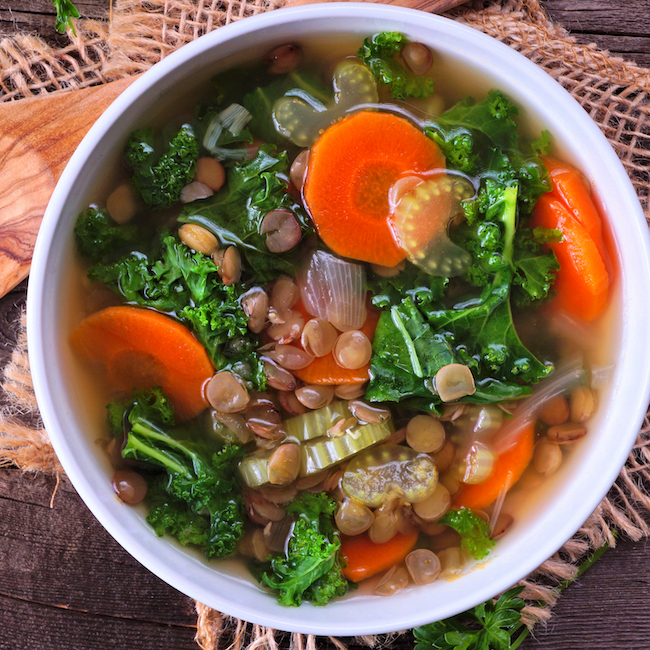This is an archived article and the information in the story may be outdated. Please check the time stamp on the story to see when it was updated last.
Inflammation is a very common experience in adults, and the root cause of a number of chronic illnesses. While inflammation in short spurts is a good thing, as it’s your body’s way of protecting you from foreign invaders like bacteria, if your body is stuck in an inflamed state for too long, it could start to wreak havoc in a number of ways. Luckily, one way you can reduce inflammation is through your diet, as lots of foods act as a direct anti-inflammatory. We asked Erin Mewshaw, FNP-BC, clinical director at New York Center for Innovative Medicine, what some common causes of inflammation are, and what the best diet to follow is to reduce it in your body.


“The most common causes of inflammation are usually from poor diet (the body does not recognize the processed, heavy, greasy, sugary foods we eat nowadays), and infection (fungal, parasitic and bacterial). Unfortunately, in today's society the quality of food has gone down immensely. This can be for many reasons, including chemical fertilizers (together with new “cheaper” varieties of crops), longer storage times, long-distance transport, food additives, and heavy metals that are added to speed up the production of food and beverages,” Mewshaw says, “This can change the composition of food that may be “branded” as healthy, making it not so healthy at all. We are also exposed to infections more than ever related to poor food quality, and increased overseas transport and travel.” Some of the most common signs of inflammation in the body are swollen joints, muscle pain, chronic fatigue, skin rashes, elevated blood sugar, irregular bowel movements, heartburn, migraines, swollen lymph nodes, asthma, and trouble focusing.
When it comes to what you should be eating if you have chronic inflammation, vegetables are one of the best go-tos to add to your meals, especially leafy greens. “Swiss Chard is an amazing leafy green that is very rich in both vitamin A and Vitamin K. Both of these vitamins play an important role in reducing inflammation in the body,” Mewshaw says, “A deficiency of Vitamin A can impair the immune system, exacerbate skin conditions, and ignite inflammation in the body.” Additionally, Vitamin K works against inflammation because it supports both bone and blood health, while also suppressing inflammatory pathways in the body.

As far as tips for working swiss chard into your meals, Mewshaw has a few recommendations. “Swiss chard is great in soups and stir-fries. You can also easily incorporate it into salad mixes.” Because we are heading into the colder months, the best way to add it to your next meal prep list is to add it to a pot of soup. Mewshaw also suggests adding in some fresh garlic with it, as garlic is a great defender of the immune system. In the fall and winter seasons, it’s more important than ever to add anti-inflammatory and immune boosting foods to your diet. Besides diet, one of the best ways to support your body against inflammation and illness is to manage your stress; getting adequate sleep and taking breaks when necessary is the best long term investment in your body and overall wellness.


























